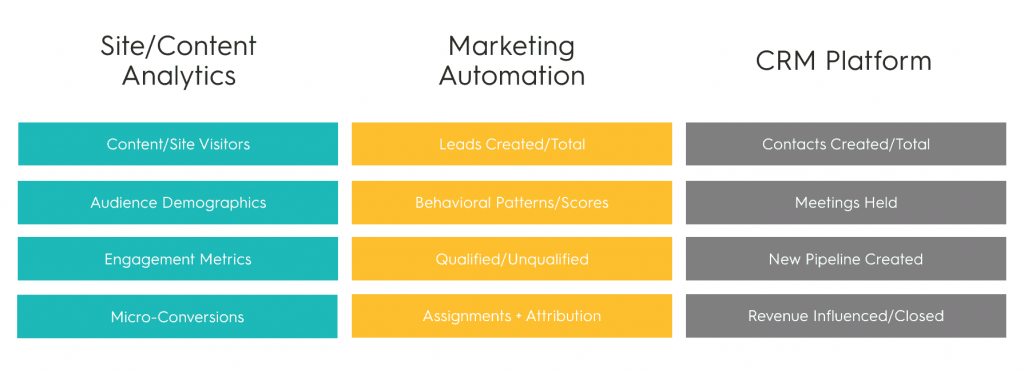Before we start with content marketing or marketing automation, let us first understand marketing.
Marketing is defined as the process of getting your product to the prospective client. But, is it just that? In the history of products, there has never been a time when a product sat on a shelf and sold itself. The very onus of the industrial revolution depended upon marketing!
Marketing was always the sole fuel that sold a product. Initially, organizations used advertisements in newspapers, radio, and TV; now, the widest used means of marketing is the internet.
There are about 4.45 billion people using the internet today. Therefore, it is safe to say that the internet is a huge platform for selling a product. 78% of the current users conduct research on every product that they purchase.
So, if you are missing out on the internet wagon, it is really a lot of leads and sales that you are choosing not to take! However, you could hop on that wagon, simply by making use of content marketing.
What is Content Marketing?
According to a recent study, 57% of businesses acquired their customer base through the brand’s blog. Content is a piece of write-up that defines a problem, gives a solution, and promotes a brand.
Content marketing is, therefore, the process of creating a piece of content that identifies the customers’ problem and resolve the issues through their product. It uses informative yet interactive content to engage the target audience.
Content marketing, to be successful, requires a long-term commitment and high-quality content. It uses the reaction and emotions of the targeted audience to give them what they need.
Content marketing has delivered some very promising results in the past. According to recent statistics, 42% of B2B marketers have reported that they are using content marketing efforts to promote their products.
60% of marketers create at least one piece of content every day. Statistics also show that 61% of the customers are influenced by custom content.
Content marketing costs 62% less than traditional marketing and makes 3 times the leads created by traditional marketing. According to a study, still use content marketing as a tool for marketing.
All this being said, it is not that easy to churn out effortless and flawless content frequently. However, you do have some help in the form of content automation!
What is Content Automation?
There are certain processes in content marketing that require a lot of labor; that can be precisely done by computers only. Content automation removes most of the human contact in content marketing.
Platforms such as Narrato do a great job at not just providing you flawless articles, but also take care of your content marketing fiasco.
These processes include grammar checking, proofreading, Plagiarism check, social media scheduling, target audience analytics, and Search Engine Optimisation.
Content automation tools are used for making unique and impactful content. Some popular content automation platforms include Grammarly, HubSpot, CopyScape, etc.
What is Marketing Automation?
Marketing automation is often used confusingly with a lot of other terms. To understand marketing automation better, we split this term into two.
Marketing is something that every corporation uses to promote its product and to reach out to prospective consumers. Marketing runs hand-in-hand with product building.
As the size of the corporation increases, it becomes very difficult to solely depend on the traditional marketing tools to woo your consumers. Therefore, the role of marketing automation comes in.
Marketing automation uses software to differentiate, integrate, and calculate customer data to produce a successful marketing campaign.
How this works is: Marketing automation tools help you recognize fruitful leads.
They would also help you nurture and convert those leads into more fruitful consumers. Even as your sales funnel approaches the end after a lead is converted into a sale, it would help you compile the data into meaningful directions for your next strategy.
Marketing automation also reduces the effort and increases the efficiency of your people on board the marketing team. This may also help you be more economical as it limits the manpower used for marketing, thus, being of huge financial importance.
What is a Marketing Automation Software?
Marketing automation software gauges the target client, segregates them according to their respective online surfing behavior, and then, provides statistics that help manage the marketing campaign.
Contrary to popular fear, marketing automation software does not turn your brand into a bot but helps you manage a marketing campaign in such a manner that it’s the most efficient for you.
Some features of marketing automation software include email marketing, lead nurturing, social media marketing, and analyzing the data.
According to recent studies, marketing automation increases sales productivity by up to 14.5%, and also increases the number of leads by a generous 80%, given that you are using the right marketing automation software.
While the best marketing automation software does a good job of getting you the right leads and fruiting them into sales, a bit more of care is needed post that! To be specific, customer care!
No, this isn’t limited to having a friendly and responsive customer care team. We are talking about managing your sales. Your consumers too need the extended treatment of marketing automation. This is usually done with the help of an easy to integrate CRM (Customer Relationship Management) software.
Thus, there is a need for platforms that bring you the best of marketing automation and CRM system in one. For instance, EngageBay’s all in one suite has the answers you are looking for from content marketing to sales nurturing.
How are content marketing and marketing automation related?
Content is an integral part of marketing.
Marketing uses content as the key to every consumer’s heart. Content cannot be just anything general; it has to be very specific and customized according to the customer’s needs and taste.
A successful marketing campaign is the one in which there is a specific group of people targeted, the right kind of content is delivered to them, and the timing of the delivery is bang-on! Any lack of these features and the marketing campaign will fail.
Marketing automation is not a one-size-fits-all tactic. It goes hand-in-hand with content marketing. How? Let us see with real-life examples.

Here are 7 ways in which content automation complements marketing automation:
Image Courtesy: NewsCred Insights
-
Create Engaging Content and Be Remembered Across All Channels
To be remembered, you always have to have a conversation with your customers. Marketing automation uses online behavior to attract customers.
The online behaviour of users is recorded by marketing software and advertisements are projected according to it. It uses emails to provide a direct link to the website and social media, to help increase the leads.
If you deliver customized content to the consumer, marketing automation would then be able to further help you increase sales.
Moreover, to make customized blogs or posts, you need a pin on the people you are targeting. Again, marketing automation tools at the rescue!
-
Customized and Targeted Content
The advertisements that pop-up on Facebook, Google and YouTube are an example of marketing automation.
These software use the consumers’ onsite behaviour and differentiate between them to provide customized content for a particular group of people. Your social media ads are thus redirected to people who are more likely to react positively to your ad.
Without marketing automation, your ads won’t be effective, instead, they would be vague. Moreover, it is a cycle, the interactions you have with different touchpoints further helps realign automation.
-
Create a Database
Marketing automation not only helps you market, but it also helps you create a database for your content. It is a long term marketing strategy, which answers questions such as:
Is your marketing campaign gathering good leads?
How many of those leads are successfully moving through your sales funnel into becoming sales?
Moreover, leads from your website could be captured directly and securely entered into your databases, if you make use of a good marketing automation software.
-
Marketing Automation Helps Deliver Content Better
You could make the best post ever, but it flops devoid of marketing efforts. How, when, and more so, to whom it gets delivered makes the most impact.
Marketing automation helps take content marketing to another level. It simplifies the process of tracking the performance of your content on every social media platform.
The best part is that it also helps in simplifying the collected data and provides an analysis to do better in the future.
A simple example of marketing automation working hand-in-hand with content marketing is that with the former you will come to know how many people open your email, how many people read through the article, how many people were interested in your brand or your product.
When you know how your content is performing, you can realign future content accordingly to get the desired results.
-
Gives you a Strategy
Marketing automation uses tools and software that collect data about every piece of content online. An example of this is Buzzsumo.
Buzzsumo shows you what topic is ‘hot’ and the kind of content that people are reading at the moment. This helps in creating unique and customized content for your target audience.
-
Analysis and Distribution
There is no marketing until you are sure who is your customer. Marketing automation helps you figure that out as well!
A rundown on your write-ups across different channels would help tools pick-up on the group of readers you are attracting most. There would be immersive reports on how well each of your content fares into attracting more such people.
You could know about the exact instant people dropped out of your video or your podcast. You could understand your retention, and it is only when you get a hold of these analytics, should you plan a well-calculated move.
-
Removes Human Error
Marketing automation helps you deliver your content without any human error. With the help of content automation, the content piece that you create can be edited perfectly with impeccable grammar and Plagiarism free.
The consumer is the king; it is necessary that you customize every content piece that you create so that your consumers at large feels special.
Sending out automated emails is one such perfect instance of marketing automation and content marketing going hand-in-hand.
Your email is your content, and marketing automation can help you send it out to various consumers in a bulk, while also making it highly personalized.
If a human were to enter all those emails one-after-another and then personalize each script, there would be a lot of time and energy consumption. On top of that, a scope for an insane amount of errors!
Conclusion
Marketing automation and content marketing cannot be imagined without each other. Without content, there is no marketing, and without marketing automation, there are fewer chances that your content will perform well.
A well-written piece of content and the correct strategy of marketing can be your ticket to a successful business ahead.
Marketing automation helps you in collecting, differentiating, and analyzing consumer data to provide a perfect target audience for your content. This knowledge can be used to customize content and make it better for your customers.
A well-written content delivered on-time to the correct audience can help in increasing the sales and nurture the current as-well-as future leads.
